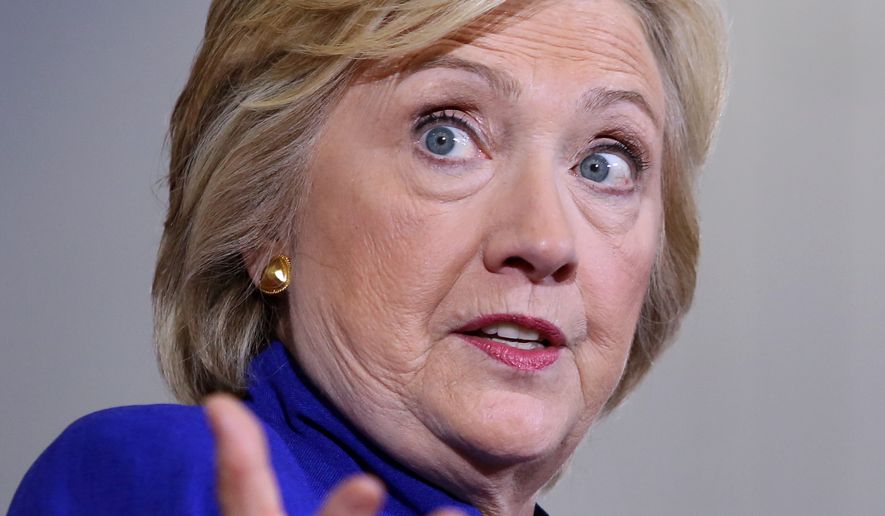To be successful in Monday’s debate, Hillary Clinton may have to suppress her inner policy wonk.
While it goes against the nature of the former senator and secretary of state, scholars said her history shows that she’s better off when she avoids the kinds of specific policies and details she excels at.
In her long political career, dating back to debates in her 2000 Senate bid, her 2008 presidential campaign and again this year against Sen. Bernard Sanders for the Democratic nomination, her best moments have had little to do with policy.
But when specifics did come up — such as a misstep on drivers licenses for illegal immigrants in 2007, or a rambling answer on fracking at a forum earlier this year — she’s suffered.
“When we’ve polled debate viewers, the candidate that is seen as spouting the most facts and figures and technical policy language is seen as the loser of the debate,” said Mitchell McKinney, director of the Political Communication Institute at the University of Missouri. “If one takes their task as trying to prove to the American people that they are smarter than their opponent, that they know more, that doesn’t play well on the debate stage.”
Mrs. Clinton has far more experience with debating than Mr. Trump, a political novice who first took to a debate stage in August 2015, firing barbs and spreading controversy from his very first answer.
That could backfire if he takes the same approach toward Mrs. Clinton. In 2000 she outlasted Rick Lazio, her GOP opponent in the race for New York’s open Senate seat, after Mr. Lazio was deemed a sexist bully for the way he treated her at a forum, crowding the then-first lady and wagging a finger in her face, demanding she sign a campaign finance pledge.
In the 2008 contest, Mrs. Clinton benefited after being asked why voters didn’t seem to like her. As she answered, Mr. Obama interrupted and declared, “You’re likable enough, Hillary.” The answer, widely seen as condescending, was one of the rare Obama missteps in the primary campaign.
But Mrs. Clinton stumbled when handling thorny policy questions.
In one 2007 debate she was asked whether she supported an effort by her home state, New York, to grant driver’s licenses to illegal immigrants. Then-Sen. Clinton said the proposal made a lot of sense, but then said she opposed it.
Mr. Obama and other opponents were relentless in their attacks, both on the debate stage and in the days that followed. This cycle, she’s said she supports driver’s licenses for illegal immigrants.
While Mrs. Clinton, by most accounts, performed well in her debates with Mr. Sanders, she again stumbled by giving a confusing answer on fracking.
Mrs. Clinton said she supports the practice but opposes it if local communities don’t want it, or if the process causes pollution, or when companies don’t reveal the chemicals they use in the process. She said that it would be nearly impossible to meet all of her conditions.
Mr. Sanders pounced on the having-it-both-ways response.
“My answer is a lot shorter: No, I do not support fracking,” the Vermont senator said.
In her upcoming debate with Mr. Trump, specialists say Mrs. Clinton would be wise to avoid sounding like the grizzled Washington veteran that she is and should instead try to create moments that humanize her. At the same time, she can’t allow Mr. Trump to stake claim on being the only candidate willing to change Washington.
“You have an unsettled public. Being knowledgeable makes it seem like you’re a friend of the status quo, and that can be a problem,” said Ben Voth, director of debate at Southern Methodist University.
• Ben Wolfgang can be reached at bwolfgang@washingtontimes.com.




Please read our comment policy before commenting.